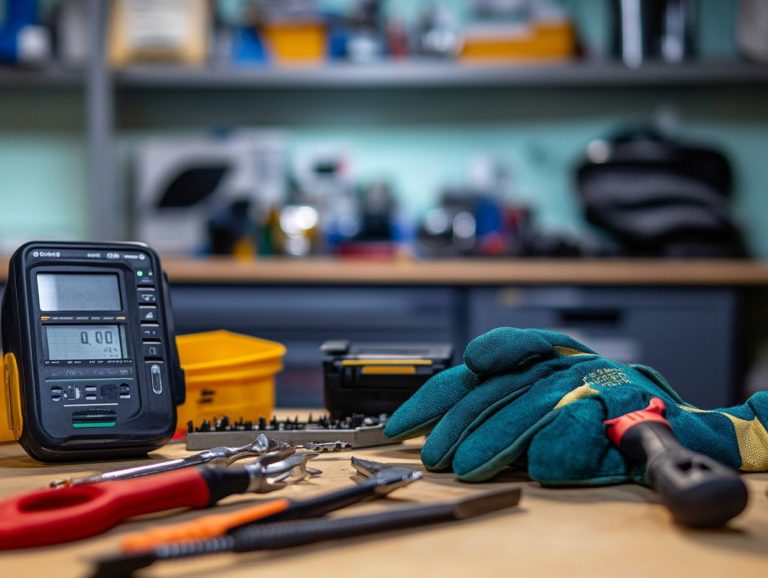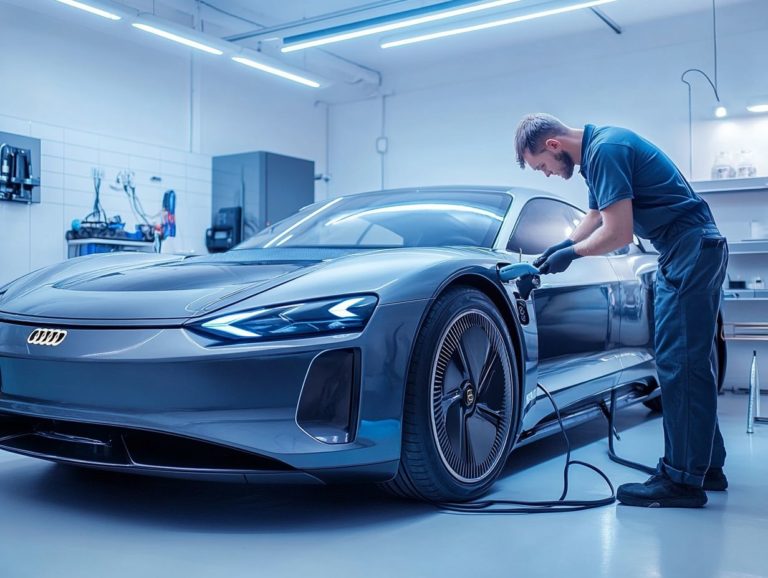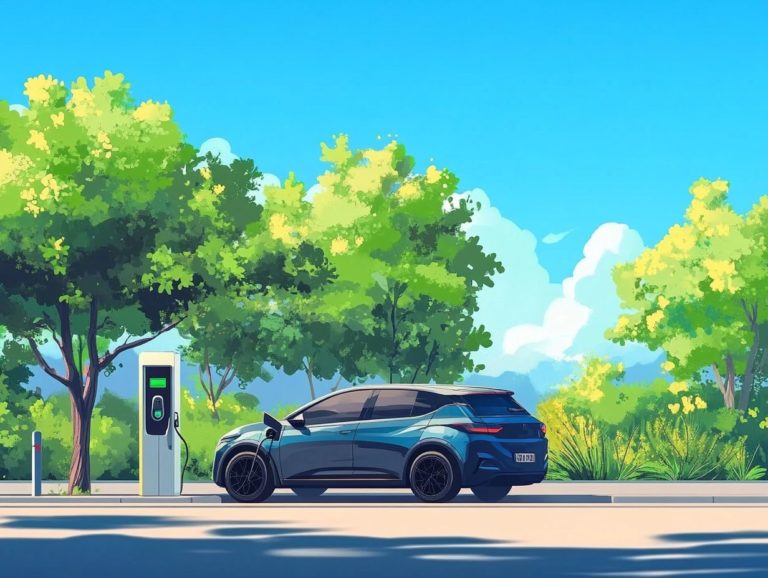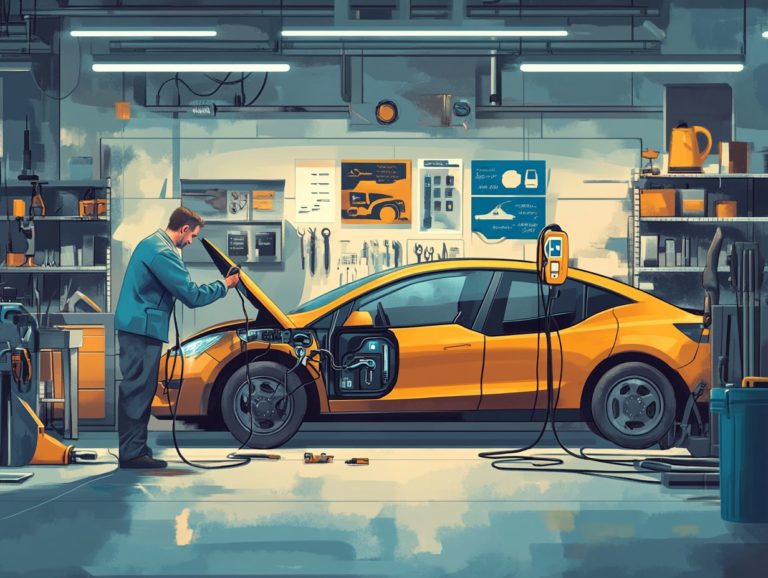Seasonal Care for Electric Vehicles
As electric vehicles (EVs) gain popularity, it’s vital for you to know how to care for them year-round.
Seasonal factors can significantly impact how well the battery works and overall performance, from maintaining efficiency in winter to ensuring cooling during summer.
This guide will walk you through steps for winterizing your EV, offer summer maintenance tips, and discuss the importance of regular inspections.
With the right knowledge, you can keep your electric vehicle running smoothly, no matter the season.
Contents
- Key Takeaways:
- Preparing for Winter
- Summer Maintenance
- Year-Round Care
- Special Considerations for Extreme Weather
- Frequently Asked Questions
- What is seasonal care for electric vehicles?
- Why is seasonal care important for electric vehicles?
- What are some common seasonal care practices for electric vehicles?
- How often should seasonal care be performed on an electric vehicle?
- Can I perform seasonal care for my electric vehicle myself?
- Is there any specific care needed for electric vehicles during extreme weather conditions?
Key Takeaways:
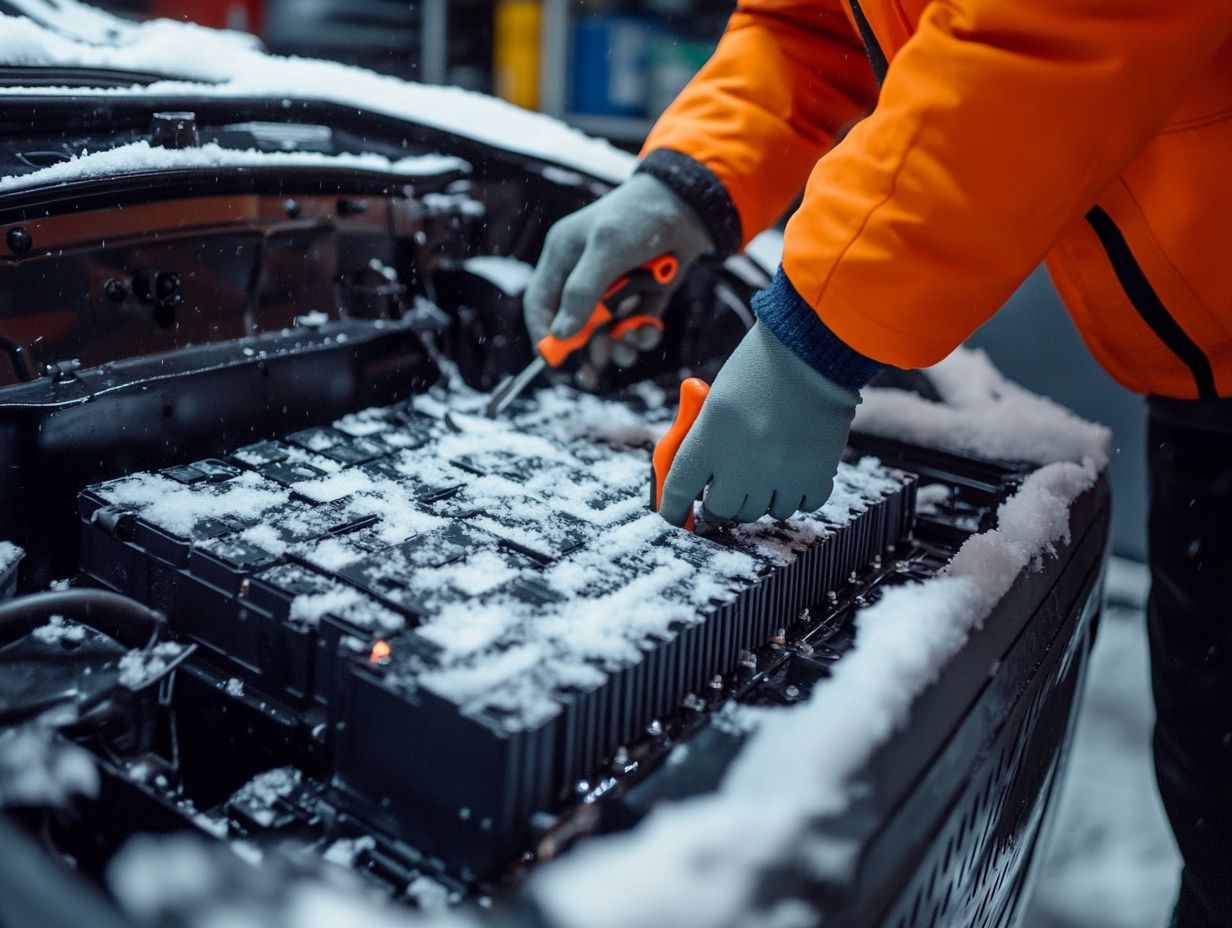
- Winterizing your electric vehicle is essential for optimal performance and range in colder months. This includes checking the battery, tires, and fluids, and considering a cold weather package.
- Like any vehicle, electric cars need regular maintenance in summer. This includes monitoring battery health, keeping the car cool, and checking for any potential issues.
- Year-round care is crucial for the longevity and efficiency of electric vehicles. This involves regular maintenance, inspections, and addressing extreme weather conditions to protect your car.
Why Seasonal Care is Important for Electric Vehicles
Seasonal care is essential for your electric vehicle (EV), as it influences battery health, driving performance, and overall longevity especially in winter.
Colder temperatures can reduce the range and performance of EV batteries if you don’t take proper precautions.
Understanding the needs of your electric vehicle in winter, including maintenance practices and preparation strategies, helps you tackle challenges posed by snow, ice, and fluctuating temperatures.
As winter approaches, focus on your EV, particularly battery management and tire performance.
Unlike traditional engines, electric vehicles often see a dip in efficiency in frigid weather, affecting driving dynamics.
Regularly checking battery insulation and the charging system can help you address potential cold-weather issues, enhancing safety and performance.
Adapting your driving for icy roads and monitoring tire pressure will significantly contribute to a smooth winter driving experience.
Preparing for Winter
Preparing your electric vehicle for winter requires some essential steps to ensure optimal performance, safety, and efficiency in chilly conditions.
- Check the health of your battery, as cold weather can impact its performance.
- Optimize your heating, ventilation, and air conditioning system for effective operation in low temperatures.
- Adjust your charging habits to meet the challenges posed by cold weather.
By taking these proactive measures, you’ll ensure your vehicle is ready to tackle winter with confidence.
Winterizing Your Electric Vehicle
Winterizing your electric vehicle involves several essential steps that can elevate your driving experience during the colder months. Begin by installing winter tires. Ensure fluid levels are up to par and utilize techniques like battery preconditioning to maximize charging speed and efficiency.
Adapting your EV to harsh winter conditions will significantly enhance its handling, safety, and overall functionality.
Start the winterization process by assessing your tires’ condition. Switching to winter tires is crucial; they provide superior traction on icy or snowy roads, improving stability during challenging weather conditions.
Next, don t overlook fluid levels. Check that your windshield washer fluid and brake fluid are at optimal levels to ensure visibility and braking performance are top-notch.
Employing battery preconditioning before you hit the road is another game changer. It helps maintain battery health and extends your vehicle’s range in colder temperatures, resulting in more efficient charging and better performance on those frigid mornings.
By implementing these practical measures, you re not only prioritizing safety but also enhancing the longevity of your vehicle. Start your winterization today to ensure a smooth drive this season!
Summer Maintenance
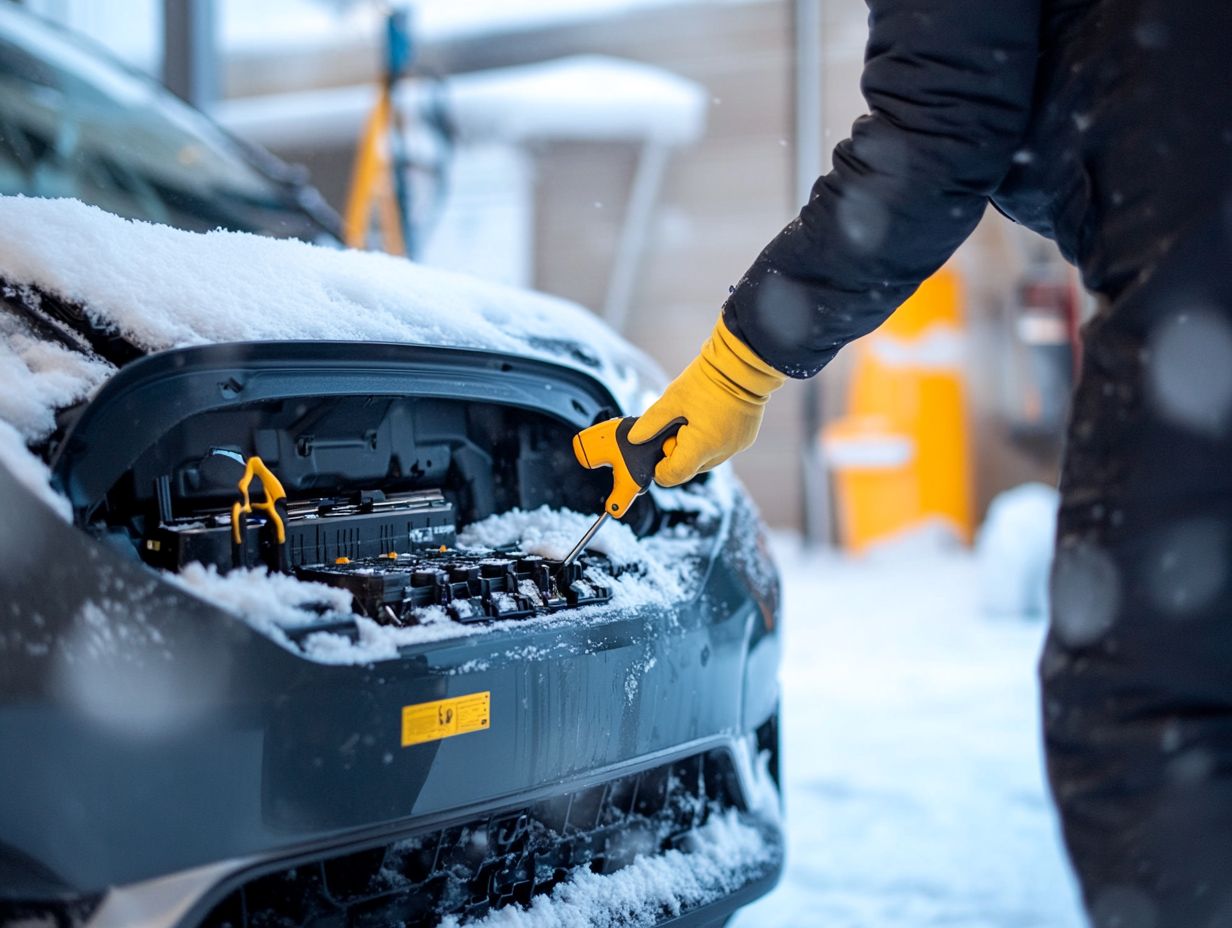
Summer maintenance for electric vehicles focuses on optimizing energy consumption, ensuring heating and cooling efficiency, and cultivating proper charging habits to elevate the vehicle’s overall performance in sweltering conditions.
As temperatures climb, addressing the unique needs of your EV becomes crucial to ensure it operates at its best while extending its longevity.
Tips for Keeping Your Electric Vehicle Running Smoothly in the Summer
To keep your electric vehicle in peak condition during the summer months, embrace specific strategies focused on maintenance, optimizing heating and cooling efficiency, and fine-tuning your charging habits to manage energy consumption effectively. These approaches can enhance your vehicle’s performance and extend its lifespan.
With rising temperatures, heat can put extra stress on your battery, so ensuring proper ventilation is crucial to prevent overheating. Regularly check your tire pressure; hot weather can cause tires to expand, potentially leading to driving issues. Parking in shaded areas will help keep your vehicle cooler and reduce reliance on air conditioning, conserving valuable battery power.
Adopting mindful charging practices, such as charging during the cooler evening hours, optimizes your battery s health and promotes efficient energy use, contributing to a more sustainable driving experience overall.
Year-Round Care
Year-round care for your electric vehicle emphasizes the importance of consistent maintenance and regular inspections to guarantee optimal battery health and overall performance, no matter the season.
By following a comprehensive maintenance schedule, you can effectively mitigate issues that arise from temperature fluctuations, ensuring your vehicle remains in peak condition throughout the year.
Regular Maintenance and Inspections
Regular maintenance and inspections are vital for ensuring your electric vehicle operates at its best. Focus on key areas like battery health, fluid levels, and tire maintenance. Neglecting these aspects could risk losing performance and create potential safety hazards!
Battery checks are particularly important, as they directly affect your vehicle’s range and overall performance. Keeping an eye on fluid levels like coolant and brake fluid ensures that all systems run smoothly and helps prevent overheating or malfunctions.
Don’t overlook tire maintenance either. Ensuring proper inflation and checking tread depth not only boosts efficiency but also enhances handling and safety. By prioritizing these essential areas, you can enjoy a smoother ride, extend the life of your electric vehicle, save money on repairs, and ensure a safer driving experience.
Special Considerations for Extreme Weather

When encountering extreme weather conditions, it’s crucial to consider special measures to protect your electric vehicle s battery health, ensure heating, ventilation, and air conditioning (HVAC) efficiency, and maintain charging speed. These measures not only enhance safety performance but are also essential for the safe operation of your vehicle in harsh climates.
Understanding these factors will enable you to navigate challenging conditions with confidence.
How to Protect Your Electric Vehicle in Extreme Conditions
Protecting your electric vehicle in extreme conditions requires a careful plan that emphasizes maintaining battery health, ensuring fluid performance, and practicing proper tire maintenance. Don t forget to equip yourself with an emergency kit for those unexpected situations. These strategies are essential for reducing risks from bad weather.
Understanding how temperature impacts battery life is invaluable. For instance, keeping your battery charged between 20% and 80% can truly enhance its longevity. Regularly monitoring fluid levels like wash fluid and coolant is equally vital for maintaining performance in harsh climates.
Tire readiness should also be at the forefront of your mind. Checking for proper inflation and tread depth can help prevent mishaps on slick surfaces. Using thermal blankets or parking in garages can additionally protect critical components from extreme heat or cold.
By adopting these practical strategies, you can significantly extend your vehicle s lifespan! This ensures a safer driving experience.
Frequently Asked Questions
What is seasonal care for electric vehicles?
Seasonal care for electric vehicles involves specific maintenance and preparation steps, including a detailed seasonal checklist for your electric vehicle, to ensure optimal performance and longevity during different seasons of the year.
Why is seasonal care important for electric vehicles?
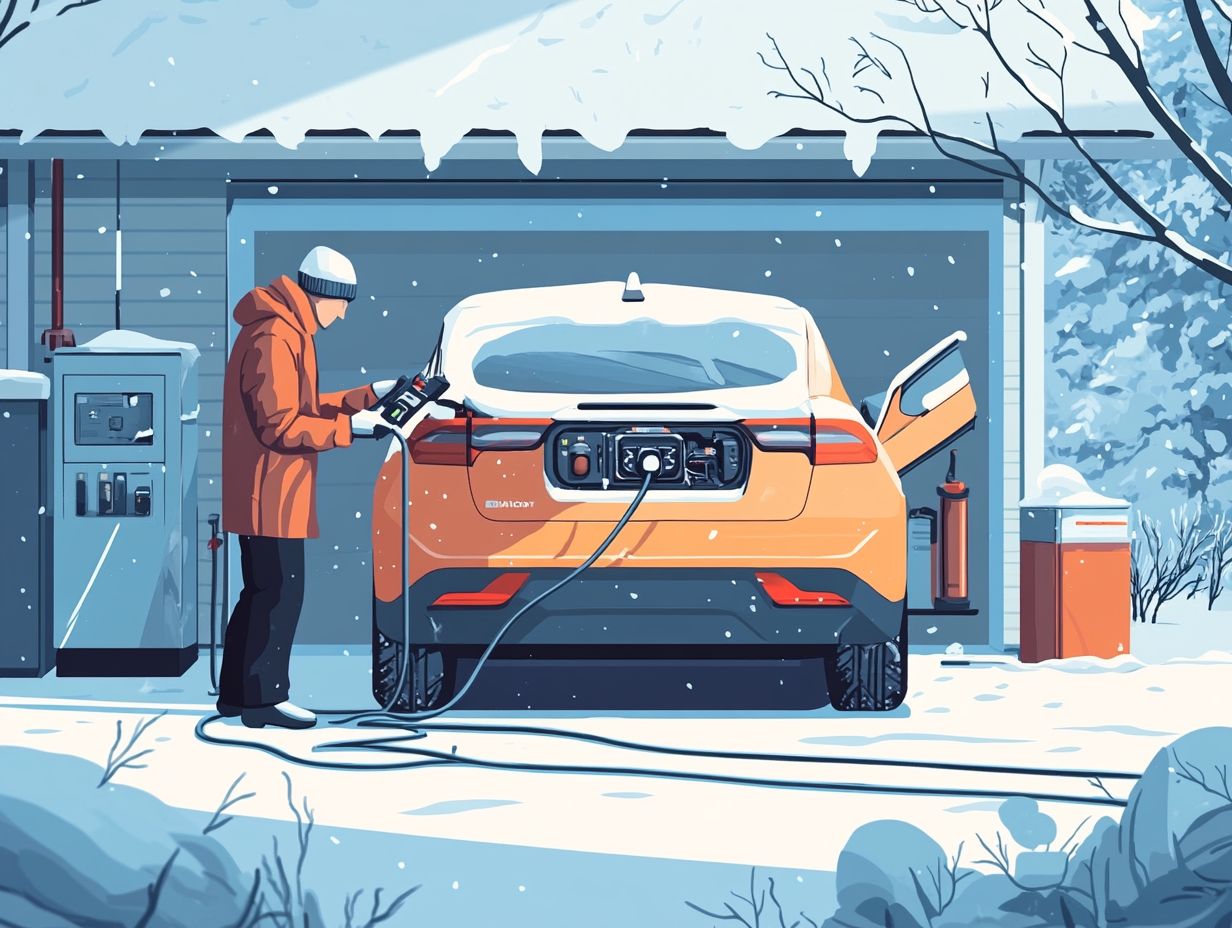
Electric vehicles may require different care and maintenance during different seasons due to changes in weather, road conditions, and driving habits. Proper seasonal care can prevent potential issues and help maintain the vehicle’s efficiency and range.
What are some common seasonal care practices for electric vehicles?
- Checking and replacing tires
- Monitoring the battery’s state of charge
- Cleaning and lubricating parts
- Protecting against extreme weather conditions
How often should seasonal care be performed on an electric vehicle?
Seasonal care for electric vehicles should be performed at least twice a year, before the start of summer and winter. However, some maintenance tasks may need to be done more frequently, depending on the vehicle’s usage and conditions.
Can I perform seasonal care for my electric vehicle myself?
While some basic seasonal care tasks can be done by the vehicle owner, it is recommended to have a professional technician perform more complex maintenance and inspection procedures, especially for the battery and high-voltage components.
Is there any specific care needed for electric vehicles during extreme weather conditions?
Yes, extreme weather conditions such as hot summers or cold winters can affect the performance and range of electric vehicles. It is recommended to follow manufacturer guidelines and take necessary precautions, such as using a battery heater in cold weather or avoiding prolonged exposure to high temperatures.
Don t wait for bad weather; check your electric vehicle today!

